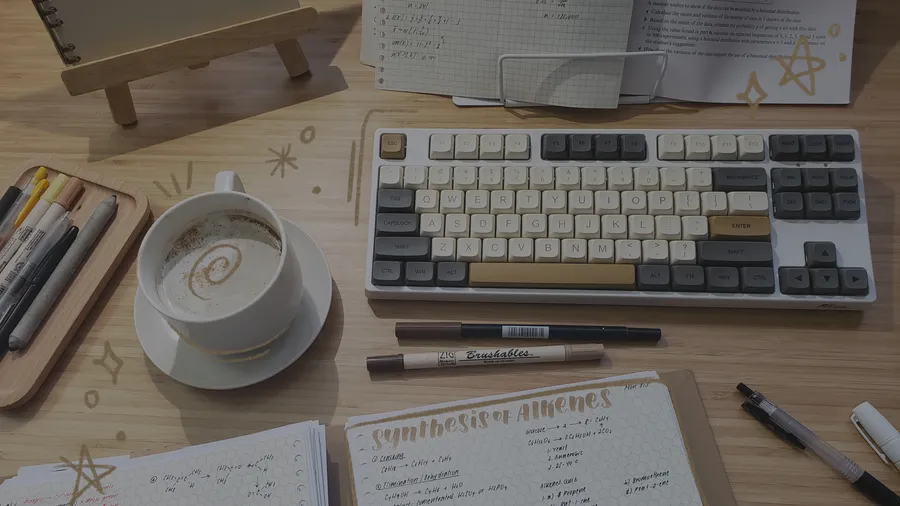Menu

Studying basics are the foundation for efficient and effective studying. Essentially, by understanding how the brain learns and retains information, we can create general guidelines and techniques to maximise the speed, amount, and quality of the information we learn.
Active Recall is one of the most effective study techniques because it forces your brain to actively engage with the material, strengthening your ability to retain and recall information. Instead of passively re-reading notes or textbooks, Active Recall involves asking yourself questions on the material and trying to retrieve the answers from memory. In doing so, specific neural pathways are strengthened, making the information easier to remember and embbeding the information into your long term memory.
To implement Active Recall, begin by reviewing a section of material, then close the book or your notes and attempt to recall key ideas, vocab, or definitions without looking. You can get a friend to quiz you with questions, use flashcards, or give yourself the title of a section as a prompt. Eventually, you will begin to remember the content better and better, until you know everything in the chapter or on the test by heart. When you have tests, using practice test questions to practice the retrival of relavant info will also significantly increase your memory of the topics on the test.
Spaced Repetition is another study technique that involves the practice of reviewing material frequently at first, but then gradually increasing the time between review session. For example, at first you would review content every few hours, then every day. As time goes on, you review every 3 days, then every week, then every 3 weeks. This technique is based on the psycholocial spacing effect, which states that spaced out study sessions produce better memory retention than repeated cram sessions.
To implement Spaced Repetition, just know in general to review content frequently when you first learn it, then space out the review sessions longer and longer in the future. The other takeaway here is that a 10-hour cram session for a test will be less effective than 10, 1-hour review sessions spaced out during the month before the test.
As a general rule of thumb, learning massive amounts of content is entirely possible, given you study methodically and effectively. For example, start off by using Active Recall to practice concepts or definitions you have newly learned. As time goes on, you can review the content less frequently (Spaced Repetition), creating time to start learning something new. As you get better at this, you can create cycles of learning new things, practicing it to proficiency, and starting something new while reviewing the previous topic. At the end, you will have at covered all topics in a subject or course at least once in depth, while still having a fresh memory of them.
One more thing that can be applied to studying is the 80/20 rule. This rule states that 80% of the results come from 20% of the work, while the other 20% of the results come from 80% of the work. This means that depending on what you want to achieve, you may only have to put in 20% of the work.
To use this rule, first ask yourself what the end goal is. For most people, it's doing well on their next big test or exam. So the natural solution to do that is to only study what will be tested. In terms of learning, it may not be the best, but studying the important and heavily weighted topics is what will reflect in the score you recieve. Additionally, focus on concepts or ideas that you are weak in, since studying topics you are already good at is a waste of your time.
Studying can be done many ways, but doing it effectively involves knowledge of how we learn best. Of course, these methods and tips may not work for everyone, and it is up to the individual to find things that work for them. Ultimately, what matters is finding ways to reduce the time studying while maintaining or increasing the amount of content learned. If you haven't already, try studying using these tips; they may make a huge difference in your next test score!